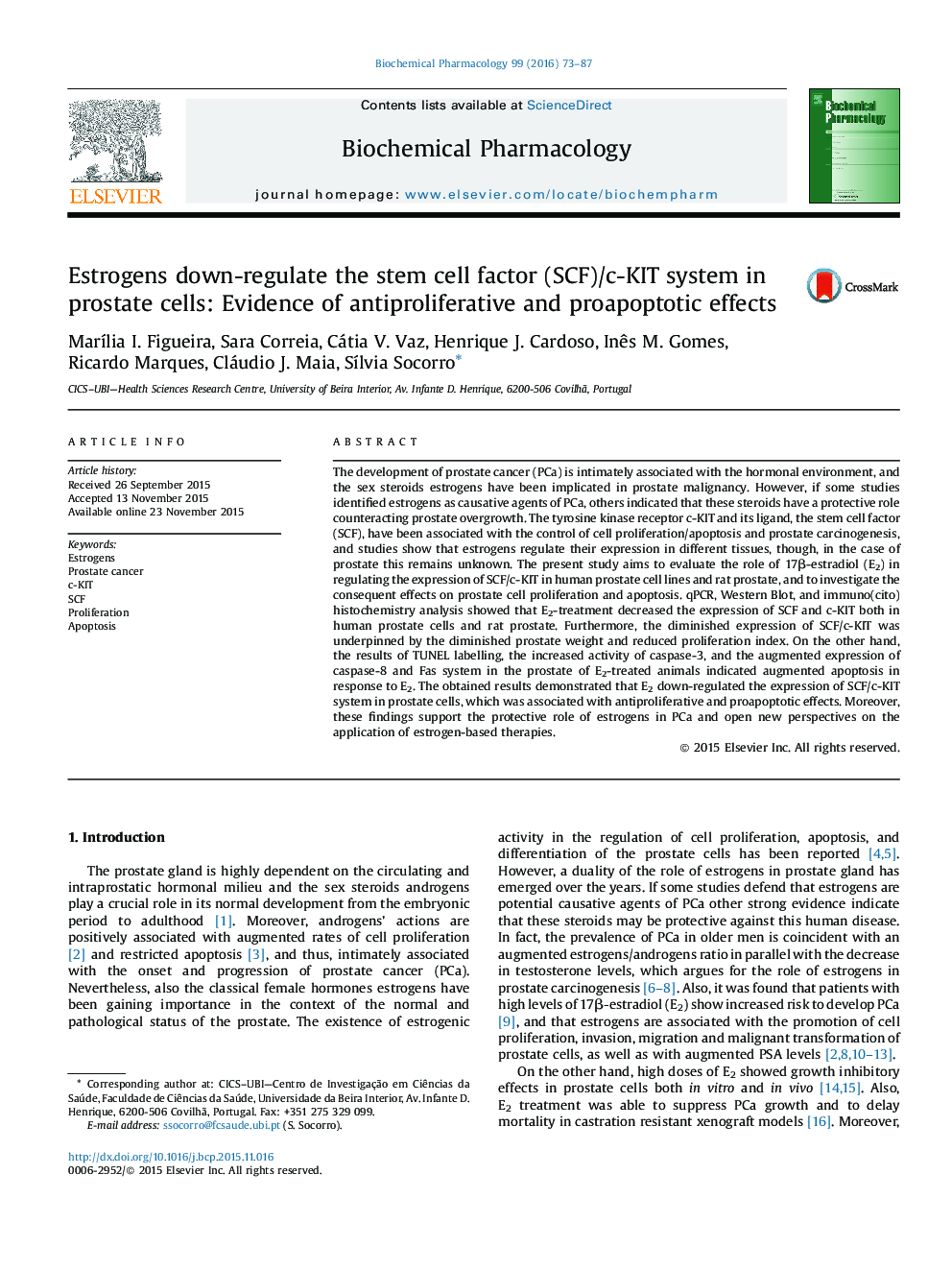| کد مقاله | کد نشریه | سال انتشار | مقاله انگلیسی | نسخه تمام متن |
|---|---|---|---|---|
| 2511887 | 1645494 | 2016 | 15 صفحه PDF | دانلود رایگان |

The development of prostate cancer (PCa) is intimately associated with the hormonal environment, and the sex steroids estrogens have been implicated in prostate malignancy. However, if some studies identified estrogens as causative agents of PCa, others indicated that these steroids have a protective role counteracting prostate overgrowth. The tyrosine kinase receptor c-KIT and its ligand, the stem cell factor (SCF), have been associated with the control of cell proliferation/apoptosis and prostate carcinogenesis, and studies show that estrogens regulate their expression in different tissues, though, in the case of prostate this remains unknown. The present study aims to evaluate the role of 17β-estradiol (E2) in regulating the expression of SCF/c-KIT in human prostate cell lines and rat prostate, and to investigate the consequent effects on prostate cell proliferation and apoptosis. qPCR, Western Blot, and immuno(cito)histochemistry analysis showed that E2-treatment decreased the expression of SCF and c-KIT both in human prostate cells and rat prostate. Furthermore, the diminished expression of SCF/c-KIT was underpinned by the diminished prostate weight and reduced proliferation index. On the other hand, the results of TUNEL labelling, the increased activity of caspase-3, and the augmented expression of caspase-8 and Fas system in the prostate of E2-treated animals indicated augmented apoptosis in response to E2. The obtained results demonstrated that E2 down-regulated the expression of SCF/c-KIT system in prostate cells, which was associated with antiproliferative and proapoptotic effects. Moreover, these findings support the protective role of estrogens in PCa and open new perspectives on the application of estrogen-based therapies.
Figure optionsDownload as PowerPoint slide
Journal: Biochemical Pharmacology - Volume 99, 1 January 2016, Pages 73–87